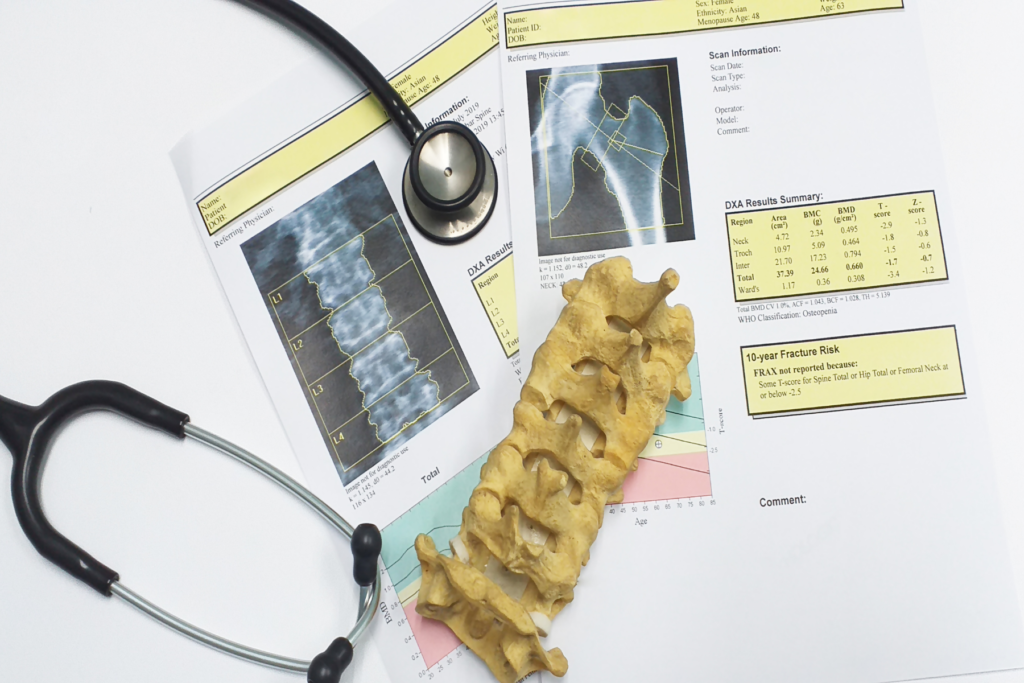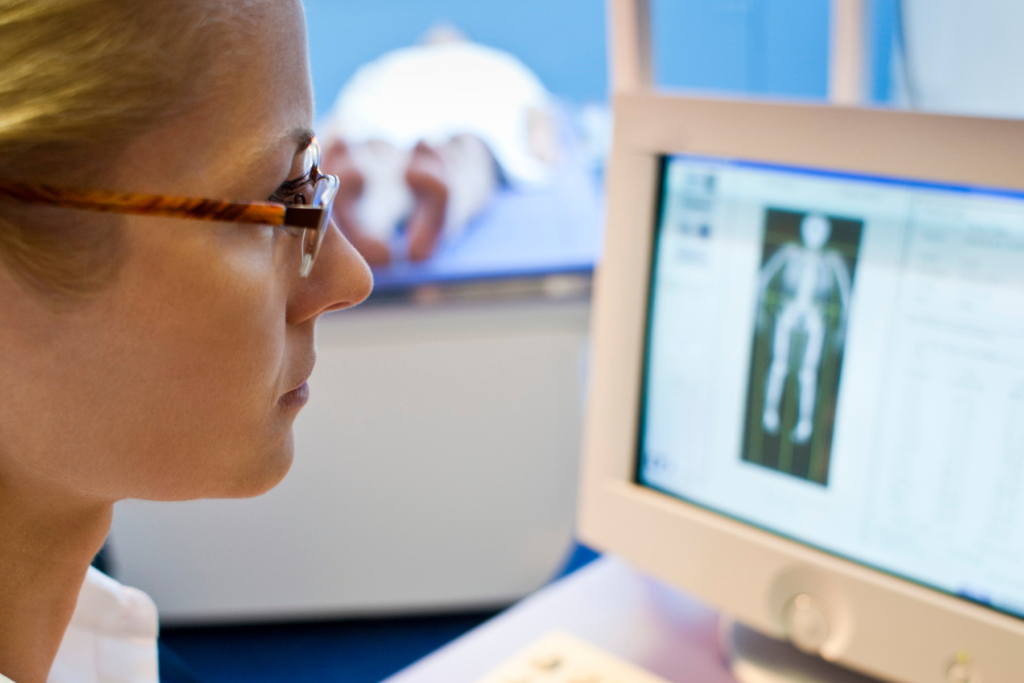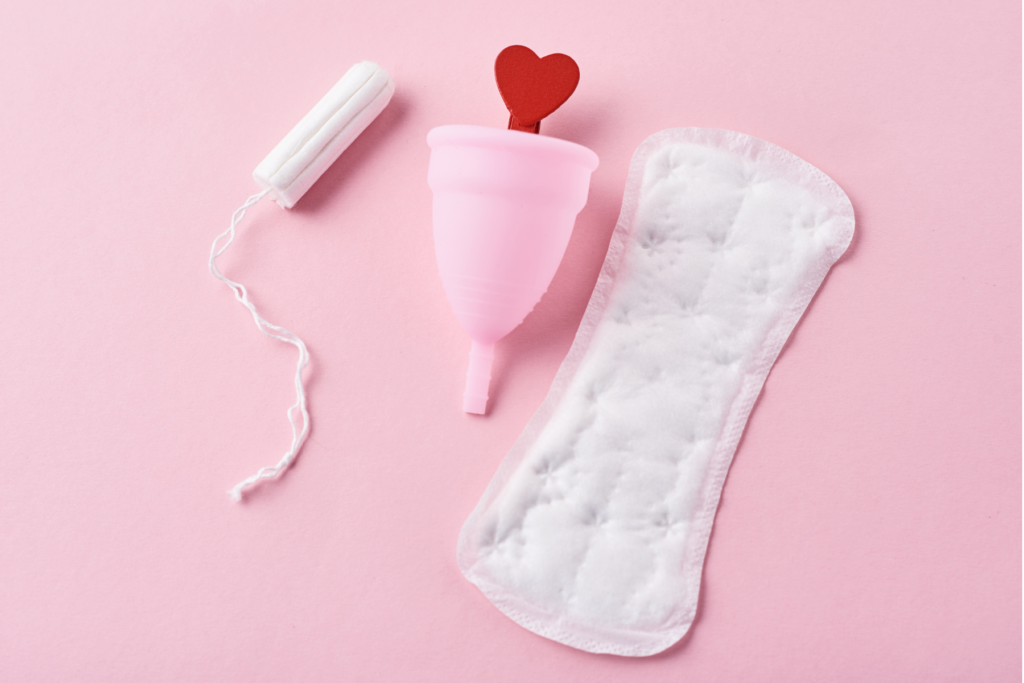Should You Get a DEXA Scan?
October 24, 2022

What is a DEXA scan? Do I need to get one? In honour of World Osteoporosis Day last week on October 20th, let’s talk about bone health.
Healthy bones are essential to living a long and quality life. Thus, we should make it a priority to take care of our bones. If you are looking to take steps towards supporting your bone health or are worried about your bones, a DEXA scan might be part of your plan.
What is a DEXA Scan?
DEXA or DXA stands for “dual x-ray absorptiometry”. A DEXA scan is a non-invasive diagnostic procedure used to look at the density of your bones. The scan uses x-rays to create an image of your bones and calculations to assess your bone density.
What are DEXA Scans Used for?
DEXA is used to assess bone density which essentially means how strong and thick your bones are. It is the gold standard for diagnosing osteoporosis. Osteoporosis involves low bone density, fragile bones, and easily broken/fractured bones.

How Does it Work?
During a scan you will be asked to lay still on a table for 10-30 minutes while a radiologist completes the procedure. A scanning arm will pass over your body or specific areas like your hips and lower spine. The scan uses two types of x-rays which are absorbed differently by your bones and the rest of your tissues. The scan produces an image of your bones and a computer calculates a score for your bone density:
-above -1 means your bones are normal
-between -1 and -2.5 means your bones have mildly reduced density
-at or below -2.5 is considered osteoporosis
DEXA scans are considered safe and even use a lower level of radiation than standard x-rays. However, you should never receive any treatment involving radiation if pregnant.
When Should I Get a DEXA Scan?
Generally, it is recommended that you have a DEXA scan if you are at risk of low bone density or osteoporosis.
A common side effect of underfueling and overexercising is loss of period. This combination is also referred to as the female athlete triad. Losing your period can affect your bone density as your estrogen levels drop. In general, eating disorders and poor nutrition increase stress on the body and the risk of osteoporosis. Young women with eating disorders are actually less likely to meet peak bone density and have a lifelong deficit as a result. Thus, If you have lost your period for more than 6 months or have experienced an eating disorder, a DEXA is a good idea.
Other conditions that can affect bone density include diabetes, liver disease, kidney disease, or hyperparathyroidism. In addition, some medications like corticosteroids, anti-seizure medications, and thyroid medications can cause your bones to become weak.
Finally, if you are entering menopause, are 65+, or have family members with osteoporosis, you may be at risk yourself. If you have easily fractured a bone or have unexplained back pain, you may have a DEXA scan to assess for osteoporosis as well.

Why is it Important?
Protecting our bones is so important. Our bones support us, allow us to move, and protect vital organs in our bodies. Bones even store essential minerals like Calcium and Phosphorus and release them into our blood when we need them.
Our bones continue to strengthen and build in density until our mid twenties. After this point, our bones start lose density and weaken. Once women hit menopause, estrogen levels decline and bone density declines as well at a more rapid rate. However, both men and women can be at risk of low bone density and osteoporosis, especially after 65 and with any of the conditions or circumstances discussed above.
Getting a DEXA scan can help to catch bone problems early if we know when to get one done. While bone loss is inevitable, lifestyle changes and sometimes medications can slow bone loss, maintain current bone density, and strengthen bones.
We can take care of our bones today by eating enough, maintaining a healthy body weight, getting Calcium and Vitamin D, doing an appropriate amount of resistance training, and considering a DEXA scan if you are a candidate. Check out our other blog post HERE for more on how to keep your bones healthy and strong.
[…] females, can reduce bone mineral density. This not only increases the risk for development of osteoporosis but also bone injuries like stress […]